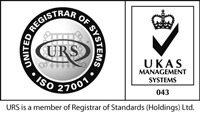More and more companies choose to outsource their software development operations to service providers in order to reduce costs and shorten production times. Like any other outsourced business process, software outsourcing has its benefits and shortcomings. However, drawbacks can easily be avoided by carefully choosing the partner that will take care of your software development needs. In this article I’m going to talk about the things you should take into consideration before venturing into an outsourcing partnership.
What is outsourcing?
Outsourcing is a process in which a company transfers portions of work to another company or individual – rather than completing it internally. In other words, you free yourself from actually doing a certain task, and instead you get to supervise the process that is performed by an external team on your behalf. Although things seem straightforward, the biggest challenge is to find and employ an outsourcing company that understands your requirements and is able to provide a service according to your standards, and which can become your partner in the long run.
So what are the best practices when choosing an outsourcing company for software development?
Define a guideline before contacting the outsourcing company
Once you have reached the conclusion that you want to outsource, it’s best to create a guideline that will be forwarded to the outsourcing company, and which will serve them as a starting point for the actual software development plan. The guideline should include specific requirements that your company has for the development of the software, including must-have features, nice-to-have features, examples of similar work, work priorities etc.
Developing a clear and well-structured plan with your outsourcing partner will help prevent possible misunderstandings, and will ensure that the product is delivered according to your expectations and timelines.
Also, keep in mind that if along the way your requirements change, the timeline of the project is due to get updated, so try to communicate to your partner these changes as soon as possible. Don’t be shy and ask your partner what are the implications of new updates, and how will these affect the original development plan of the software product.
In-depth review of the software development company
It is important to check several software development outsourcing companies before making up your mind, and also to try and contact the companies and ask them questions about their experience, past work, certificates, references etc. A good idea would be to visit the company’s headquarters and meet the people you’re planning to work with.
Also, it is important to acquire information regarding certain aspects, such as:
* What is the company’s internal structure?
* How is the software development organized?
* What are the company’s security standards when it comes to source code?
* How is the communication process structured?
* Does the company provide tracking software for development and testing?
Asking the right questions
It’s best to ask the right questions from the beginning of the collaboration in order to know what to expect from this type of partnership. Here are some examples:
* What technologies will be involved in the development of the project?
* Are there any limitations regarding the selected technologies?
* Can different approaches be used in the software development, and if yes, what is the best one?
* Does the software product require maintenance, once deployed in production?
* What might be the risks during development (cost increases, changed milestones etc.)?
Cheap… at twice the price
It’s a known fact that many companies are using software development outsourcing services in order to reduce costs. However, too cheap might just mean bad quality, which in the end can result in an increase of the overall cost (either the project takes longer to complete, or you’ll end up paying for the additional time required to fix the existing issues).
So it’s recommended to have a realistic approach when it comes to both costs and timelines – “cheap” may mean done in a hurry, and “fast” might just not be that reliable and might affect further development. Keep in mind that developing software takes time. Time for management, actual software development, and testing (+ additional time for updating and finding workarounds for possible constraints and technological limitations).
Communication, communication… and oh, I forgot… a little more communication
A study revealed that 25% of the reasons for failed outsourcing software development projects are due to poor communication. Choosing an outsourcing company from a country proficient in foreign languages (such as Latin countries) is a good start in finding the right partner. Also, keep an eye open when it comes to cultural background – education, values etc., because these too can provide valuable information about the people you’re going to work with. Communication, together with similar cultural background and work ethics constitute a vital link between you and the software development & testing partner.
It’s also important to set focus on the tools that you’re going to use in order to communicate and the contact persons responsible for the project (at both ends of the collaboration) – it’s vital to know at any time who can answer your questions, and how you can reach her (and vice-versa). As basic as this seems, this aspect gets neglected in some cases, and if you add up a time zone difference of -/+ 7 hours, you might find yourself in trouble.
Conclusion
Outsourcing software development is a challenging endeavor. Doing your due diligence beforehand, developing an appropriate plan for the actual development, and establishing proper communication channels with your partner will make the process straightforward and will ensure the project’s success.







